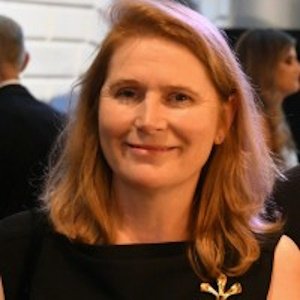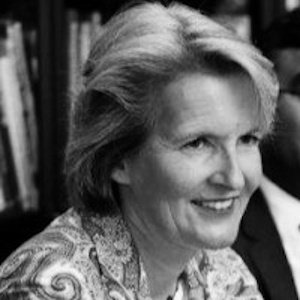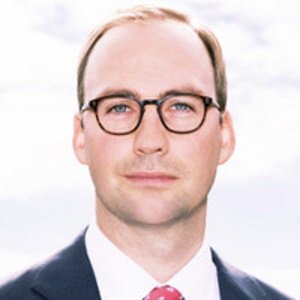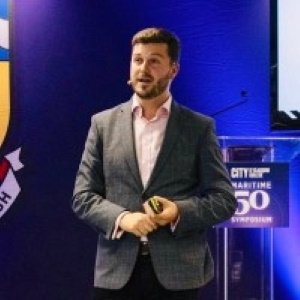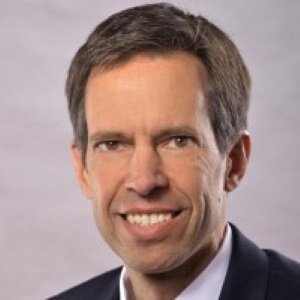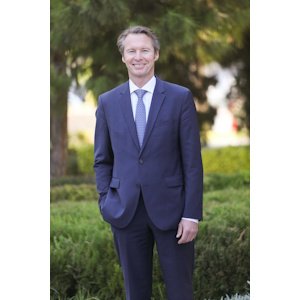A multi-faceted, comprehensive conference programme addressing the industry’s most pressing issues will once again captivate SMM visitors this year. The pioneering international maritime trade fair will put decarbonisation, digitalisation, recruiting as well as maritime security and defence at the top of its agenda.
For the first time, the conferences will take place on the four Transition Stages, freely accessible to all visitors: Green Stage, Open Stage, Cruise & Ferry Stage and Digital & Security Stage. An overview of the conference highlights.
Industry’s most important topics
From 3 to 6 September, SMM in Hamburg will open its gates to more than 40,000 participants from 120 different countries. With over 2,000 exhibitors from 70 countries as well as a first-rate stage programme focused on the industry’s most important topics, SMM is the world’s maritime flagship fair. “SMM is more than just a trade fair. It is a platform for sharing innovations and new ideas that will move the maritime sector forward. This is where thought leaders and pioneers meet to set the pace for the future of shipping,” says Claus Ulrich Selbach, Business Unit Director – Maritime and Technology Fairs at Hamburg Messe und Congress.
SMM in Hamburg will open its gates to more than 40,000 participants from 120 different countries
“At our five conferences, international experts will discuss the key concerns of the industry. As a major novelty, the conferences will be held on the freely accessible Transition Stages in the exhibition halls for the first time. This means that all participants will be able to attend the panel discussions and lectures free of charge,” explains Selbach. In addition, numerous Stage Sessions will be held to provide profound insights into the core topics on the stages Green Stage (Hall A4), Open Stage (Hall B2.OG), Cruise & Ferry Stage (Hall B5) and Digital & Security Stage (Hall B6). “SMM serves as a platform addressing the most important issues of the maritime industry. It helps pave the way into a sustainable and digitalised future,” says Claus Ulrich Selbach.
Decarbonisation
Here is an overview of the top items on the agenda:
GMEC– Global Maritime Environmental Congress: At GMEC, early adopters will report about their experiences with alternative fuels. Ways to accelerate decarbonisation will be the subject of a panel discussion including Nicola Good, Head of Brand and External Relations at the classification society Lloyd’s Register, and Gunnar Stiesch, Chief Technical Officer of MAN Energy Solutions.
At GMEC, early adopters will report about their experiences with alternative fuels
Nick Chubb, CEO of the British technology company Thetius, will moderate GMEC this year. As an experienced founder of start-ups, he knows who plays the lead roles in the green transition: “The vast majority of innovations in our industry come from a large number of small and medium-sized companies that form deep, long-lasting partnerships with the industry. This should be celebrated and encouraged more than it is today,” says Chubb. For example, the British company Signol believes in using software to help crews adopt fuel-saving behaviour patterns. Harriet Hunnisett-Johnson, Head of Maritime and a former seafarer herself, will explain the concept. (4 September, Green Stage, Hall A4)
Offshore dialogue
“Sustainability needs for the ocean we want” is the theme of this year’s Offshore Dialogue, hosted by Gesellschaft für Maritime Technik (GMT). Its two-panel discussions, “Offshore Energy” and “Offshore Resilience”, will explore the climate change processes happening in the oceans, and how digitalisation can help achieve the climate goals. The importance of offshore wind farms for the global energy transition will be the subject of a discussion between Professor Sören Ehlers, Director of the DLR Institute of Maritime Energy Systems, and his guests. “The shipping industry urgently needs alternative fuels to achieve its carbon neutrality ambition,” says Ehlers.
“Whether methanol or ammonia – the basis will be hydrogen. Its carbon-neutral production will require enormous quantities of green electricity, which will be primarily generated by wind turbines.” Further speakers will include the Federal Government’s Coordinator for the Maritime Industry, Dieter Janecek, Torgeir Sterri, Offshore Classification Director at DNV Maritime, and Erik Seidelmann from Current Scientific Corporation. (5 September, Open Stage, Hall B2, upper level).
Innovations for the onboard energy transition
Quest for just alternative propulsion ideas will be on the plan of several sessions on the Green Stage
The quest for suitable alternative propulsion concepts will be on the agenda of several sessions on the Green Stage. The British company Core Power has tabled a proposition that is hotly debated in the industry: to introduce nuclear power to commercial shipping. Other alternative fuels will be discussed during the session “Propulsion of the Future – what will power future global trade?” Whichever green fuel will make the race: Experts on the panel-themed “Green Fuels for the Maritime Sector – Integrating Vessel Demands in the Future Fuel Supply Chain” will stress the importance of ensuring a reliable fuel supply for future shipping (Green Stage, Hall A4).
In parallel with the stage sessions, exhibitors from around the world will showcase their innovations for the onboard energy transition. The Future Fuels Area (Hall A2) will feature suppliers of maritime hydrogen technology, while the Green Route will help visitors identify companies offering solutions for the decarbonisation of ships.
Digitalisation
Maritime Future Summit: Digitalisation – and in particular, the role of AI – will be in focus at the Maritime Future Summit. Titled “Smart is Green”, the conference will gather numerous pre-eminent experts in the digital field. For example, Dimitry Ponkaratov, Director at Siemens Digital Industries Software UK, will explain how digital twins can save fuel.
The HullSkater is a robot that pulls special bacteria and the biofilm before macro fouling can occur
The benefits of AI-based ship hull management are the domain of Helle Vines Ertsås, Global Category Manager of coating specialist Jotun. She will present an innovative solution for vessels operating in regions with a high risk of hull fouling: “We first predict the degree of fouling using data-based algorithms, then confirm it in a visual inspection. If required, our HullSkater will be used subsequently to clean the hull,” explains Ertsås. The HullSkater is a robot that removes individual bacteria and the biofilm before macro fouling can occur. Dr. Amy Parkes from Arcsiela Partner LLP will explain the potential benefits of AI for ship operations. A machine learning expert, she specialises in modelling big-data algorithms and developing AI methods for vessel optimisation (4 September, Digital & Security Stage, Hall B6).
Limitations of additive manufacturing
On the Digital & Security Stage, researchers and practitioners will report on the potential as well as limitations of additive manufacturing in the maritime sector, moderated by AM/3D Printing Concepts & Market Integration. The future prospects of autonomous shipping, especially in Germany, will be the subject of a discussion between port managers and engineers in the session titled “Steering Future – the future of autonomous navigation in Germany” (Digital & Security Stage, Hall B6).
SMM is giving the subject a prominent platform of its own at the AI centre (Hall B6)
Exhibitors along the Digital Route will let industry visitors experience digital innovations first-hand. Acknowledging the importance of AI applications for the shipping industry, SMM is giving the subject a prominent platform of its own at the AI centre (Hall B6). This is also where the AI for the Oceans Award will be presented to developers of advanced technologies for saving the oceans (Open Stage, Hall B2). Young companies that are especially innovative will be featured in a number of formats at SMM: along the Start-up Route, during the Maritime Innovation Challenge at the MS&D conference, and in the Start-up Pitches competition hosted by Maritime Start-ups Germany.
Recruiting
The shortage of skilled labour hinders industrial growth, and the maritime sector is not an exception – reason enough for SMM to call broad attention to the subject. Whether ferry operations or port management, the objective is to show young talents how attractive the maritime industry is and what career opportunities it offers. Therefore, a Stage Session organised by Thilles Consulting will address Employer and Industry Branding (5 September, Cruise & Ferry Stage, Hall B5). At the Career Forum, pioneering maritime organisations such as the German Shipowners Association VDR and the Northern German Maritime Cluster will provide information about career planning and career paths in shipping, and universities will present their maritime education programmes.
Networking chances during the Career Happy Hour on 5 September will provide a perfect ambience
At the Maritime Career Market and along the Job Route, young talents can make contact with employers offering attractive career perspectives (5 + 6 September, Open Stage, Hall B2, upper level). The student rally, organised by VSM, the German Association for Shipbuilding and Marine Technology e.V., is aimed at school students. Here, they have the opportunity to explore the exhibition grounds with students from maritime disciplines and to learn about various companies as well as training and study opportunities (6 September). The networking opportunities during the Career Happy Hour on 5 September will provide a perfect ambience for career planning.
Maritime Security & Defence
MS&D – international conference on maritime security and defence: The agenda at MS&D will not only cover the latest trends in naval shipbuilding but also geostrategic issues. Panel members will include public figures such as former Ukrainian deputy minister of defence, Igor Kabanenko, and Dr. Jyh-Shyang Sheu from the Taiwanese Institute for National Defence and Security Research. In their conversation with Dr. Sarah Kirchberger, Director of the Institute for Security Policy at Kiel University, both will provide first-hand security assessments of two crisis or war situations. Maritime security and the protection of maritime infrastructure at the present turning point in history are concerns voiced by corporate consultant and Reserve Corvette Captain Dr Moritz Brake.
Agenda at MS&D will not only cover the latest trends in naval shipbuilding but also geostrategic issues
“The new security situation requires answers at the societal level. It highlights the growing responsibility of private operators of critical maritime infrastructure. No business model in the maritime sector will remain competitive without an updated security concept and adequate resilience.” Australian retired Major General Mick Ryan, expert at the Centre for Strategic & International Studies, will explain the tasks of navies in complex operations. At the Maritime Innovation Challenge, innovative small enterprises and start-ups will pitch their best innovations and technologies for maritime security and defence (5/6 September, Digital & Security Stage, Hall B6). Visitors will find exhibitors of dual-use products as well as shipyards and suppliers with a focus on building and outfitting ships for navies and coast guards along the Security & Defence Route.
Further topics at SMM
GMEC, the environmental conference, will examine pathways to financing sustainable ship operations
TradeWinds Shipowners Forum: Hosted by the well-known industry magazine TradeWinds, this forum is the only remaining conference that charges an admission fee. Editor-in-chief Julian Bray will discuss with industry experts. Investment challenges in uncertain times will be the topic of an exchange of views with VDR President Gaby Bornheim, Reederei Nord CEO Kurt Klemme, and Constantin Baack, CEO of MPC Container Ships. Knut Ørbeck-Nilssen, CEO of DNV Maritime, will explore sustainable innovations the shipping sector should apply today (3 September, room “Chicago”).
GMEC, the environmental conference, will examine pathways to financing sustainable ship operations. Experts estimate the total costs of decarbonising the entire industry to range between 1 and 1.4 bn dollars. This not only calls for innovative technologies but also smart financing concepts (4 September, 11:25-12:05, Green Stage, Hall A4).
Cruise & Ferry
A major segment of SMM is dedicated to the interior outfitting of passenger ships. A session titled Designing Ships – An Annual Update will look at trends in cruise ship interior outfitting and architecture. Ship designers and representatives of cruise operators will identify challenges to the decarbonisation of river cruise ships and try to chart a course into the future of cruise shipping (Cruise & Ferry Stage, Hall B5).
In the Cruise Lines International Association (CLIA), SMM has been able to win a partner for this group of topics. Furthermore, the Cruise & Ferry Route will help visitors locate exhibitors specialising in passenger ships.


